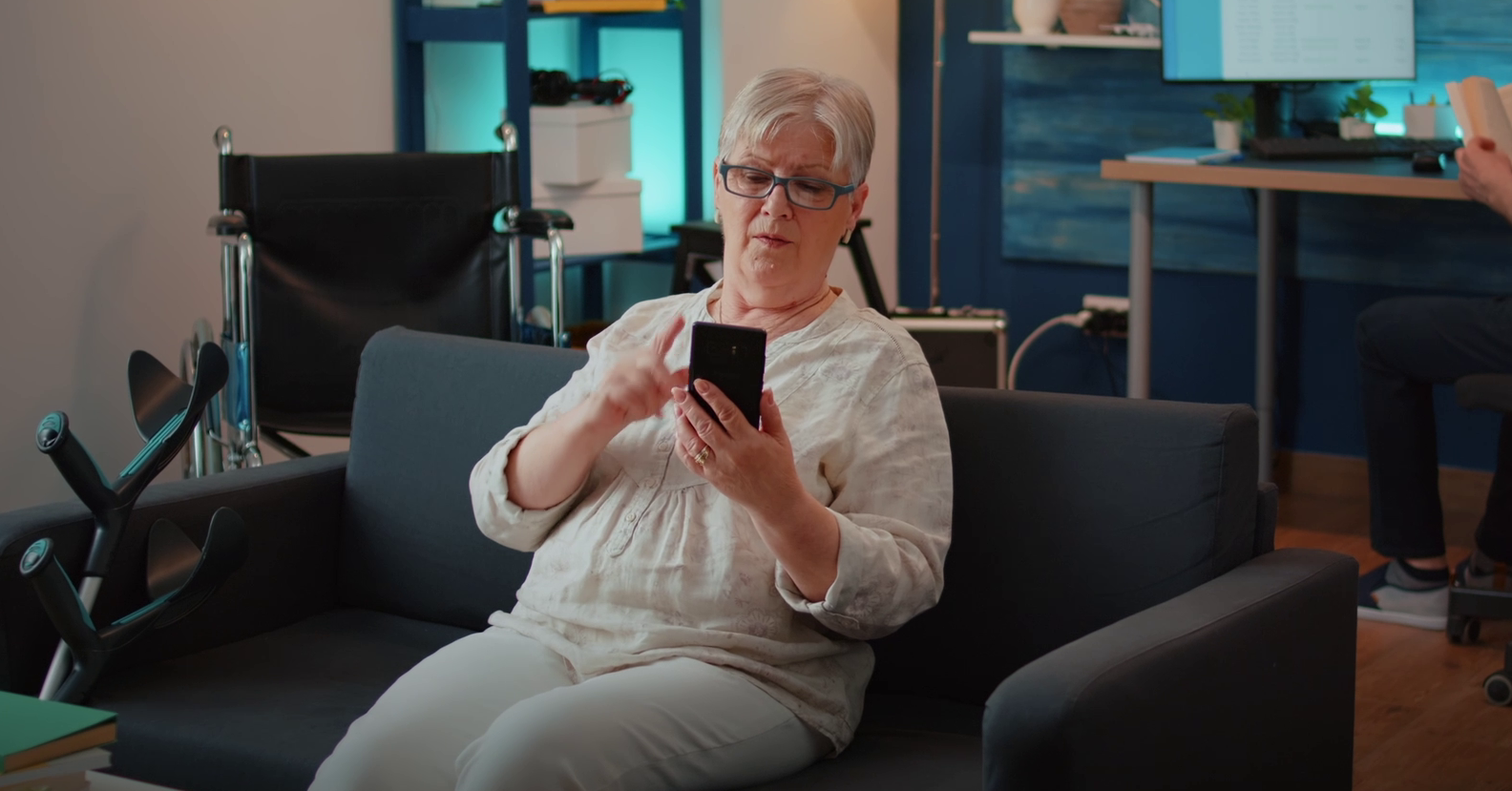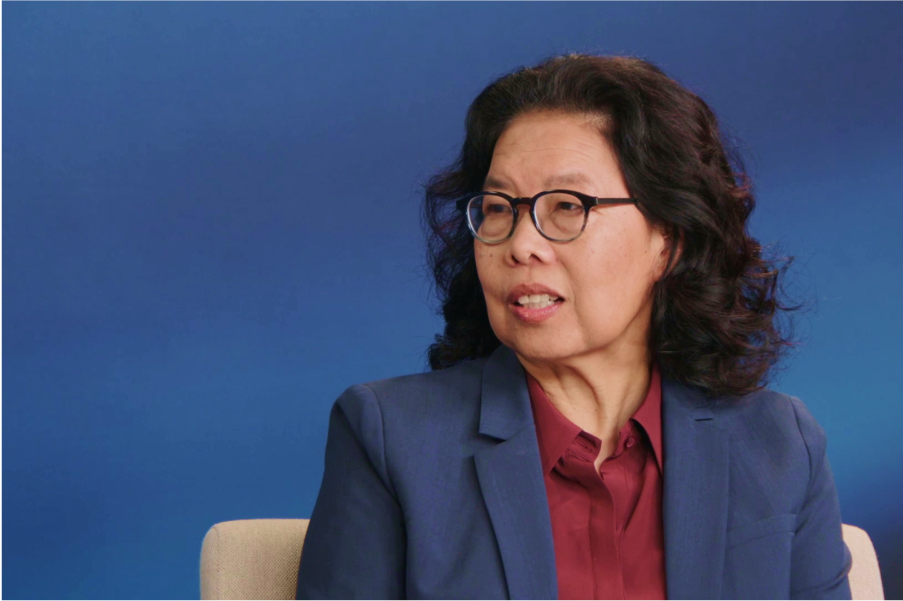October 1st, 2025
5 min read
As healthcare systems around the world strain under growing demand, workforce shortages, and increasing costs, technology has become an indispensable ally. Artificial intelligence (AI) can help to address these issues, without sacrificing the human touch.
The question is no longer if AI belongs in healthcare, but how it can support patients, professionals, and systems. The answer lies in designing human-centric applications that enhance care quality, empower patients, and ease provider workloads. It is essential that AI be safe, reliable, and developed in a way that respects human rights and embraces diversity.
NTT DATA is already applying this principle in real-world settings and is investing in projects that demonstrate what’s possible: how AI can humanize care and bring real operational value to healthcare systems. This work also offers lessons for industries beyond healthcare as enterprises seek ways to harness AI to drive innovation and deliver business and societal value.
Daily health monitoring using smartphone-based AI
One robust example of how AI can support patients and healthcare systems comes from NTT DOCOMO. Here’s how it works:
The challenge: Early detection of health risks
In recent years, extending healthy life expectancy and reducing medical and nursing care costs have become important goals. To achieve these, it is essential for people to understand their own health conditions and proactively engage in health-promoting behaviors. However, for many, it is difficult to evaluate their health objectively and from multiple perspectives. And, with current methods such as questionnaires and medical interviews, it is challenging to conduct continuous assessments across the entire population.
The solution: Health estimation through smartphone usage

NTT DOCOMO has developed several AI models that utilize diverse data collected from smartphones to assess health risks and provide advice on how to improve lifestyle habits. These models analyze behavior patterns such as outings, sleep, and communication to understand a user’s health estimates daily, with little to no effort required from the individual – because they are already using their smartphone in their daily life.
These AI models are integrated into NTT DOCOMO’s cloud system, the HealthTech Platform. By connecting to the APIs provided by this platform, partner companies can plug into the platform to provide personalized insights and health nudges to users.
Current and in-development services available through the HealthTech Platform include:
-
Frailty estimation AI for the elderly
-
Brain health check AI
-
Predictive AI for health checkup results
-
Estimation AI for habits that raise blood pressure Immunity estimation AI
Smartphones are typically always with users, so they can capture rich behavioral data, on a daily basis, and enable longitudinal tracking.
If a patient’s activity levels drop significantly, for instance, or their device usage pattern changes, the AI might flag a higher risk of frailty or decline in brain health. It can then trigger personalized messages encouraging physical activity, social interaction.
Wider use cases and integrations
Beyond personal health management, NTT DOCOMO’s HealthTech Platform enables integration into employee wellness programs, insurance services, eldercare platforms, and municipal health services. It also supports business value creation such as improving health app stickiness, enhancing functionality, and generating new revenue streams through premium health insights.
Why it matters: Shifting from episodic to continuous care
Traditional healthcare operates episodically. Patients are evaluated during appointments or when symptoms arise. Smartphone-based AI allows for continuous health monitoring without invasive devices or constant clinical oversight. This shift can drastically improve early intervention rates, reduce emergency care needs, and empower people to manage their own health. In a proof-of-concept study involving 200 participants, the use of the frailty estimation AI demonstrated an average 10 percent reduction in frailty risk, suggesting its potential to help maintain and even improve overall health.
AI simulation technology
Another technology NTT DATA is exploring for healthcare is AI simulation technology, also called digital humans. One example of this was illustrated in a test project in Denmark, where supporting Chronic Obstructive Pulmonary Disease (COPD) patients is an ongoing challenge for the public healthcare system, particularly due to limited human resources. COPD is a long-term, life-limiting illness that causes breathing difficulties and significantly reduces quality of life. Patients require ongoing monitoring and rehabilitation using multiple medical devices, but most are elderly and not comfortable with technology.

Denmark’s Region Zealand set up a Pre-Care Clinic in which patients used tablets to support their care, gaining access to measurement reminders, rehabilitation information, exercise encouragement, and more. This successfully cut hospitalization in half for the one-third of COPD patients who participated. Region Zealand wanted to expand the project to include as many of the remaining two-thirds of patients as possible – but many of these patients had limited technical skills that made it difficult for them to use the tablet-based solution.
So, Region Zealand partnered with NTT DATA Business Solutions Denmark to test a generative AI-based support platform.
Digital humans in healthcare
The Region Zealand test worked like this: A digital human, built using NTT DATA’s proprietary PARSONII platform and designed to resemble a real healthcare professional, was integrated into the patient journey. The avatar guided the patient through medical device usage, engaged them in open-ended health discussions, and motivated them to follow prescribed exercises. Speech-to-text, conversational AI, and expressive facial rendering were combined to make the interaction feel natural and supportive.
One of the main goals of this test project was to understand how elderly patients would react to speaking with digital humans instead of real human nurses at the pre-care clinic. Overall, the test showed strong acceptance of the digital humans among COPD patients aged 65–72. All participants interacted successfully with the avatar and felt comfortable doing so. The results show significant potential for scaling this type of AI support to a broader range of patients and conditions.
Key outcomes:
-
Reduced doctor workload
-
Higher diagnostic rates
-
Better care quality
-
Increased patient confidence and safety
-
Greater inclusion of less tech-savvy patients
This test project has ended but related work is still in progress, with Region Zealand implementing two other digital human characters in other parts of their organization. NTT DATA is also working with other healthcare regions on expanding digital human roles into areas such as digital receptionists, wellness counselors, and mental health guides.
Key takeaways for business and healthcare leaders

AI can help address workforce shortages
From digital nurses to automated wellness coaches, AI helps scale care delivery without scaling staff. In the case of Denmark’s COPD support program, generative AI reduced the burden on clinicians and expanded access to underserved patients.
The future of care is human-centered AI
Patients respond better to AI when it reflects empathy and familiar healthcare values. NTT DATA’s digital human was both technically capable and designed specifically to match patient expectations. This matters when working with elderly or vulnerable populations.
Smartphones are one of healthcare’s most underused assets
With near-universal adoption, smartphones are ideally placed to deliver low-cost, passive health insights. DOCOMO’S HealthTech Platform makes it easy for organizations to embed powerful AI into everyday experiences.
AI unlocks new business and societal value
For healthcare systems, insurers, tech platforms, and governments, AI can be a catalyst for innovation, allowing for personalization and prediction.
AI at the heart of health transformation
Healthcare is undergoing a once-in-a-generation transformation, and technology has become essential. With systems under pressure from rising demand, staff shortages, and escalating costs, AI offers scalable solutions that improve outcomes without losing the human connection.
NTT DOCOMO’S work in early risk detection through smartphone behavior, for instance, shows how AI can drive real impact, both clinically and operationally. At the same time, NTT DATA’s Digital Human shows how AI can ease the burden on healthcare professionals while preserving the human touch. Building on these efforts, the NTT Group is committed to bringing advanced AI to healthcare settings – AI that is safe, reliable, respects human rights, and embraces diversity. In doing so, we are shaping a future of healthcare that is both AI-enabled and human-centric.
Learn more about NTT’s approach to AI in our AI Charter, available here.





